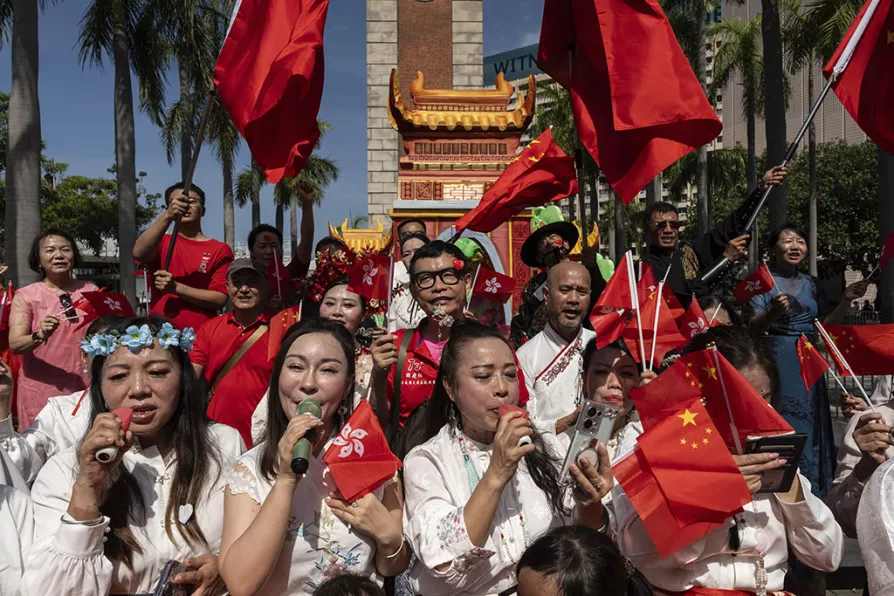The newly elected general secretary of the Aslef train drivers’ union speaks to Ben Chacko about union wins, a welcome shift in approach to the rail sector and what still needs to be done

 People celebrate the anniversary of the founding of the People's Republic of China today in its special administrative region of Hong Kong, which was not freed from British rule until 1997
People celebrate the anniversary of the founding of the People's Republic of China today in its special administrative region of Hong Kong, which was not freed from British rule until 1997
ALTHOUGH China was the world’s biggest economy for most of the last two millennia, since Britain launched the first Opium War in 1839, the country was reduced to a semi-colonial, semi-feudal society. Not for nothing is the ensuing period known by the Chinese as the “century of humiliation,” marked by unequal treaties, foreign aggression, civil wars and ultimately a victorious revolution.
When the People’s Republic of China was founded in 1949, China was one of the poorest societies on Earth. Illiteracy was as high as life expectancy was low.
The subsequent political trajectory of the People’s Republic essentially falls into two distinct phases, the second commencing with the launch of the policy known as “reform and opening up” from the end of 1978.

In Part 4 of her look at the Chinese revolution JENNY CLEGG addresses the relationship between the Peasant Movement and the National Movement

BEN CHACKO welcomes a masterful analysis that puts class struggle back at the heart of our understanding of China’s revolution

STEPHEN BELL reports from a delegation that traced the steps of China’s socialist revolution from its first modest meetings to the Red Army’s epic 9,000km battle to create the modern nation that today defies every capitalist assumption










